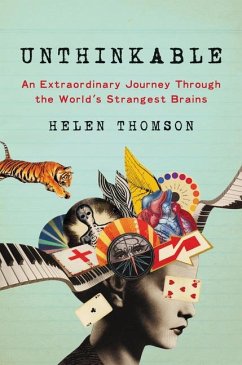Award-winning science writer Helen Thomson unlocks the biggest mysteries of the human brain by examining nine extraordinary cases Our brains are more extraordinary—and far stranger—than we think. We take it for granted that we can remember, feel emotion, navigate, empathize, and understand the world around us, but how would our lives change if these abilities were dramatically enhanced—or disappeared overnight? Helen Thomson has spent years traveling the world, tracking down incredibly rare brain disorders. In Unthinkable she tells the stories of nine extraordinary people she encountered along the way. From the man who thinks he’s a tiger to the doctor who feels the pain of others just by looking at them to a woman who hears music that’s not there, their experiences illustrate how the brain can shape our lives in unexpected and, in some cases, brilliant and alarming ways. Story by remarkable story, Unthinkable takes us on an unforgettable journey through the human brain. Discover how to forge memories that never disappear, how to grow an alien limb, and how to make better decisions. Learn how to hallucinate and how to make yourself happier in a split second. Find out how to avoid getting lost, how to see more of your reality, even how exactly you can confirm you are alive. Think the unthinkable.
Hinweis: Dieser Artikel kann nur an eine deutsche Lieferadresse ausgeliefert werden.
Hinweis: Dieser Artikel kann nur an eine deutsche Lieferadresse ausgeliefert werden.
This wonderfully clear, fluent, eye-opening book explores what happens when the mind misbehaves: distance is distorted, memory plays tricks, people hear in colour and see in music. Helen Thomson is the science teacher you wish you'd had at school . . . The unruliness of the misfiring brain is what makes Unthinkable so fascinating and so frightening . . . Thomson's book repays careful reading. Don't skip the science to get on to the well-I-never case histories. You need both together. And when the doctors Thomson interviews conclude, at the end of their examinations, that they simply cannot explain the weird workings of the brain, it isn't a "dunno" of defeat, but of wonder THE TIMES

